The Center on Aging and Health supports numerous research projects on family caregiving. Depending on how caregiving is defined, there are somewhere between 18 million and 41 million Americans who provide regular, ongoing care for the health needs of an older adult family member or friend. There is a great deal of evidence that providing care can be stressful or burdensome for many caregivers, yet the large majority of caregivers report positive effects and benefits from their caregiving experiences as well.
Researchers at Johns Hopkins continue to study the full range of caregiver experiences and outcomes. This includes descriptive epidemiological studies of the health effects of caregiving stress as well as possible health benefits from the positive aspects of caring for others. We also partner with many other investigators to scientifically examine the effects of treatment programs, interventions, and other services for family caregivers.
With the growth of the older adult population and the increasing emphasis on community-based care for older adults, understanding the factors that affect the health and well-being of family caregivers is more important than ever. Examples of publications that have resulted from our research on family caregiving include:
- Roth, D.L., Fredman, L., & Haley, W.E. (2015). Informal caregiving and its impact on health: A reappraisal from population-based studies. The Gerontologist, 55, 309-319.
- Graham-Phillips, A., Roth, D.L., Huang, J., Dilworth-Anderson, P., & Gitlin, L.N. (2016). Differences by race/ethnicity in the delivery of the Resources for Enhancing Alzheimer’s Caregiver Health (Reach II) dementia caregiver intervention. Journal of the American Geriatrics Society, 64, 1662-1667.
- Wolff, J.L., Mulcahy, J., Huang, J., Roth, D.L., Covinsky, K., & Kasper, J.D. (2018). Family caregivers of older adults, 1999-2015: Trends in characteristics, circumstances, and role-related appraisal. The Gerontologist, 58, 1021-1032.
- Burgdorf, J., Roth, D.L.,Riffin, C., & Wolff, J.L. (2019). Factors associated with receipt of training among caregivers of older adults. JAMA Internal Medicine, 179, 833-835.
- Gitlin, L.N., Marx, K., Scerpella, D., Dabelko-Schoeny, H., Anderson, K.A., Huang, J., Pizzi, L., Jutkowki, E., Roth, D.L., & Gaugler, J.E. (2019). Embedding caregiver support in community-based services for older adults: A multi-site randomized trial to test the Adult Day Service Plus Program (ADS Plus). Contemporary Clinical Trials, 83, 97-108.
- Roth, D.L., Sheehan, O.C., Haley, W.E., Jenny, N.S., Cushman, M., & Walston, J.D. (2019). Is family caregiving associated with inflammation or compromised immunity? A meta-analysis. The Gerontologist, 59, e521-e534.
- Roth, D.L., Haley, W.E., Sheehan, O.C., Huang, J., Rhodes, J.D., Durda, P., Howard, V.J., Walston, J.D., & Cushman, M. (2020). The transition to family caregiving and its effect on biomarkers of inflammation. Proceedings of the National Academy of Sciences, 117, 16258-16263.
- Sheehan, O.C., Haley, W.E., Howard, V.J., Huang, J. Rhodes, J.D., & Roth, D.L. (2020). Stress, burden, and well-being in dementia and non-dementia caregivers: Insights from the Caregiving Transitions Study. The Gerontologist. 61, 670-679.
